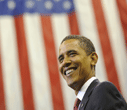Banking
Yuan, trade risks loom over economy
By Si Tingting (China Daily)
Updated: 2009-11-13 08:52
Premier Wen Jiabao said yesterday that the world faces a gradual and bumpy recovery in the wake of the world's worst financial crisis since the 1930s.
In a televised speech from a conference in Beijing, Wen said that the worst is over, but that there are risks. He didn't elaborate but the central bank said on Wednesday Chinese economy faces risks including the escalation of trade tensions, price uncertainties as well as the sustainability of the fiscal stimulus measures.
Wen assured that China will still be committed to moderately low interest rates and a proactive approach to government spending on the economy.
Tom Byrne, senior vice-president of rating agency Moody's, told reporters in Beijing yesterday that there are still reasons to believe that the global economy will experience a double dip, when the economy falls back to a recession after it recovered from the previous recession. These reasons include inflation, unconsolidated recovery and a premature withdrawal of fiscal stimulus.
Moody's Investors Service recently boosted China's sovereign ratings outlook to positive from stable, and said inflationary pressure is currently the least to be concerned about.
But Wen did not comment in his speech on China's currency policy, which United States president Barack Obama vowed to discuss in his Beijing visit next week.
China's central bank said in a quarterly report on Wednesday that it may fine-tune the yuan's rate in a "proactive, controlled and gradual manner and based on international capital flows and movements in major currencies". The message is different from the pledge made three months ago to keep the yuan "basically stable".
Many analysts interpreted the change of rhetoric as the central bank's intention to psychologically prepare the market for a resumption of currency appreciation.
Analysts also interpreted the new tone as a response to mounting pressure over China's currency policy, particularly from the US, the European Union and Japan.
A three-man mission from the EU, comprising Luxembourg prime minister Jean-Claude Juncker, European Central Bank president Jean-Claude Trichet and the EU's economic affairs commissioner Joaqun Almunia, will come to Beijing this month to persuade China to adopt a flexible exchange rate policy.
The Chinese currency has been held at close to 6.83 per dollar since July. Some argue that such a peg could trigger global imbalances.
The world is always trying to give countries advice on their currency policies, he told reporters in Beijing. "And that is the least type of advice that a dynamic, growing and developing economy such as China wants to take," he said. "Japan was advised to let the yen appreciate sharply. Look at what Japan is today."
He believed that as a developing economy with a new developing financial system, a system that needs an anchor, stable currency is a good anchor.
"I think China should be applauded for its effort to maintain a stable financial system by relying on a currency anchor," Roach said.
Jing Ulrich, managing director and chairman of China equities and commodities at JP Morgan, said that China will probably let the yuan start rising against the dollar in the second half of 2010 when exports return to growth.














